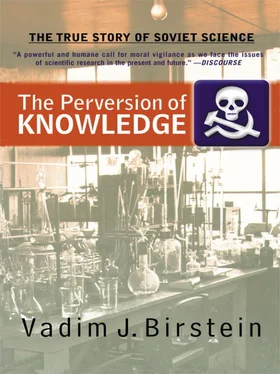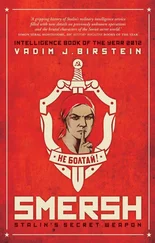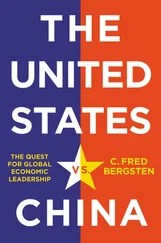Pryanishnikov, Dmitrii(1865–1948) botanist, physiologist, and agro-chemist, the author of the theory of nitrogen nutrition of plants. Graduated from Moscow University (1887) and Petrovskaya Agricultural and Forest (now Timiryazev Agricultural) Academy (1889). From 1895, chairman of the Agro-chemistry Department there. Founded the Scientific Research Institute of Fertilizers and Insecto-Fungicides, and All-Union Institute of Fertilizers, Agrotechnics, and Soil Studies, now named after him. Academician (1929), and member of the Agricultural Academy (1935). Hero of Socialist Labor, Lenin Prize, two Orders of Lenin. Defended many arrested scientists.
Raikhman, Leonid(1908–1990) joined the OGPU in 1924. Before 1937, in the Leningrad NKVD Branch, then transferred to Moscow. Deputy head of the Second Main MGB (Counterintelligence) Directorate (1946–1951). Arrested in 1951, but released in 1953 on Beria’s order. Head of the Control Inspection Office of Following Minister’s Orders (March–June 1953). Dismissed from the MVD in 1953. In 1956, tried and found guilty only of “negligence” (Article 193-17a of the Russian Criminal Code at the time). Condemned to 5 years’ imprisonment, but was released soon after the trial (Kokurin and Petrov, Lubyanka , p. 72; Voitolovskaya, A. L., “Sud nad sledovatelem” [vyderzhka iz knigi ‘Po sledam mego pokoleniya’] [Trial against an investigator (an excerpt from the book “Tracing Steps of My Generation”)], in Okhotin and Roginsky, Zven’ya , vol. 1, pp. 400–429 [in Russian]).
Rapoport, Iosif(1912–1990), geneticist, the discoverer of chemical mutagenesis and an outspoken fighter against Trofim Lysenko. In Koltsov’s Institute of Experimental Biology until 1941; volunteered for the army. Defended his dissertation during a short leave from the front. Remained in the army after he lost one eye. In 1948, at the August session of the Agricultural Academy, openly opposed Lysenko. As a retaliation, was expelled from the Party and lost his job. In 1957, Academician Nikolai Semenov invited him to the Academy Institute of Chemical Physics to continue to work on genetics; head of the Department of Chemical Genetics (1965–1990). In 1962, promoted a candidate for Nobel Prize. Was not supported by the Science Department of the Central Committee after he refused to restore his Party membership. Died in a car accident.
Rapoport, Yakov D.(1898–1962) joined the VCheKa in 1918. At the Economic Directorate of the OGPU (1924–1930), head of different construction projects conducted by prisoners of the OGPU/NKVD/MVD labor camps (1930–1956). Retired in 1956. Deputy director of the Gidroproekt Institute (Petrov and Skorkin, Kto rykovodil NKVD , pp. 356–357). As a devoted Chekist was praised in Maxim Gorky’s Belomor ( pp. 108–116).
Redens, Stanislav(1892–1940), husband of Anna, sister of Nadezhda Allilueva (Stalin’s wife). Joined the VCheKa in 1918, secretary of the VCheKa (1919). After appointments to regional CheKa/GPU offices, assistant to the Council of Commissars and to GPU Chairman Felix Dzerzhinsky (1924–1926). Later at different high positions in the government and the OGPU. Head of the Moscow Regional NKVD (1934–1938). On January 20, 1938, demoted to NKVD commissar of the Kazakh Republic. Arrested on November 22, 1938. On January 21, 1941, sentenced to death and shot on February 12, 1940. Rehabilitated in 1961 (Petrov and Skorkin, Kto rukovodil NKVD , pp. 357–358).
Reshetnikov, Stepan(1897–1941?) joined the Economic Directorate of the OGPU in 1931. Head of the Third Department of the NKVD Economic Directorate (March–October 1940). Later transferred to the NKVD branch in the regional city of Tula. Declared missing in action during the war (Petrov and Skorkin, Kto rukovodil NKVD , pp. 359–360).
Rodos, Boris(1905–1956) joined the regional NKVD in the city of Odessa (the Ukraine) in 1933. An investigator and then deputy head of the NKVD/MGB Department for Investigation of Especially Important Cases (1938–1947). Demoted to deputy head of the Crimean Regional MGB (1947–1952). Arrested in 1953, tried and shot in 1956 (Sudoplatov, A., Tainaya zhizn’ , vol. 2, p. 531).
Roedel, Willy(1897–1947), Nazi figure. During World War I served at the French and Russian fronts. In 1925 joined the NSPD (Nazi Party); Brigadefuhrer SA. From 1936, served as diplomatic courier for Hans Schroeder, chief of the Personnel Division of the Judenreferat D III within the Abteilung Deutschland (a part of the Nazi German Foreign Ministry in charge of Jewish problems). In July 1944, joined the German legation in Bucharest (Romania) as ambassador’s adjutant and head of the Information Department. In August 1944, arrested together with the other members of the legation by the Romanian army. Handed over to the Soviet military and brought to Moscow on September 7, 1944. Died from a heart attack or was murdered in 1947 (Personal Information Form from Politisches Archiv des Auswartigen Amt, Bonn, Germany).
Roskin, Grigory(1892–1964), protozoologist and cytologist. Graduated from the Moscow Commercial Institute and Shanyavsky University. Worked in France; returned to Nikolai Koltsov’s laboratory in Moscow in 1913. From 1917, at Koltsov’s Institute of Experimental Biology and later, also in the Histological Laboratory of the Zoological Institute within Moscow University. From 1930, chair of the Histology Department of the Biological Faculty of this university. From 1931, worked together with his wife, the microbiologist Nina Klyueva, on the anti-carcinogenous action of the substance cruzin extracted from the parasitic protozoan Trypanosoma cruzi . In 1947 Stalin personally named Roskin and Klyueva “anti-patriots.” They were tried by a “Court of Honor.” Academician Vasilii Parin, who gave a copy of their monograph on cruzin to American colleagues, was imprisoned as an “American spy.”
Ryasnoi, Vasilii(1904–1995), a Party functionary, joined the NKVD Main State Security Directorate (GUGB) in 1937. Head of the Gorky Regional NKVD branch (1941–1943), commissar of the Ukrainian NKVD (1943–1946). First deputy NKVD commissar (1946), MVD deputy minister (1947–1952), MGB deputy minister (1952–1953), head of the Second Main MVD Directorate (Counterintelligence) (March–May 1953), head of the Moscow and Moscow Region MVD branch (1953–1956). In 1956, discharged from the MVD. Director of the construction of the Volga–Baltic Sea canal (1956–1958), head of a building department in a road-building company (1956–1988). Retired in 1988 (Kokurin and Petrov, Lubyanka , pp. 153–154; Naumov and Sigachev, Lavrentii Beria , p. 481).
Ryumin, Mikhail(1913–1954), deputy head of a division within a SMERSH department and then of the Third Main MGB Directorate (Military Counterintelligence) (1945–1947), then at the Department for Investigation of Especially Important Cases (1947–1951), head of this Department and deputy MGB minister (1951–1952). Fired on November 14, 1952, and arrested on March 17, 1953. Tried on June 2–7, 1954, and sentenced to death. Shot in July 1954 (Stolyarov, Palachi i zhertvy , pp. 41–43 and 203–204; Naumov and Sigachev, Lavrentii Beria , p. 481).
Safonov, Grigory(1904–1973), deputy USSR chief (general) prosecutor (1939–1947), then general prosecutor (1948–1953) (Naumov and Sigachev, Lavrentii Beria , p. 482).
Sakharov, Andrei(1921–1989), nuclear physicist and prominent human rights activist. Graduated from Moscow University (1942), and from 1945, at the Academy Physics Institute. Defended his doctoral thesis at age 26; academician at age 32. Recruited into the H-bomb program in 1948; at the secret institute Arzamas-16 (1950–1968). Together with academician Igor Tamm, developed the theoretical basis for controlled thermonuclear fusion. In 1961, opposed Premier Nikita Khrushchev’s plan to test a 100-megaton hydrogen bomb. In 1968, published in the West the essays Progress, Coexistence, and Intellectual Freedom . In 1980, after his denunciation of the Soviet invasion of Afghanistan, exiled to the closed city of Gorky (now Nizhnii Novgorod) and deprived of his Hero of Socialist Labor awards. In 1984, Sakharov’s wife, Elena Bonner, was convicted of anti-Soviet activities and was also confined to Gorky. In December 1986, the Soviet government under Mikhail Gorbachev released Sakharov and Bonner and they returned to Moscow. In April 1989, elected to the Congress of People’s Deputies. Died on December 14, 1989, after Gorbachev, who presided the deputies’ meeting, interrupted Sakharov’s speech. Nobel Prize for Peace (1975).
Читать дальше











